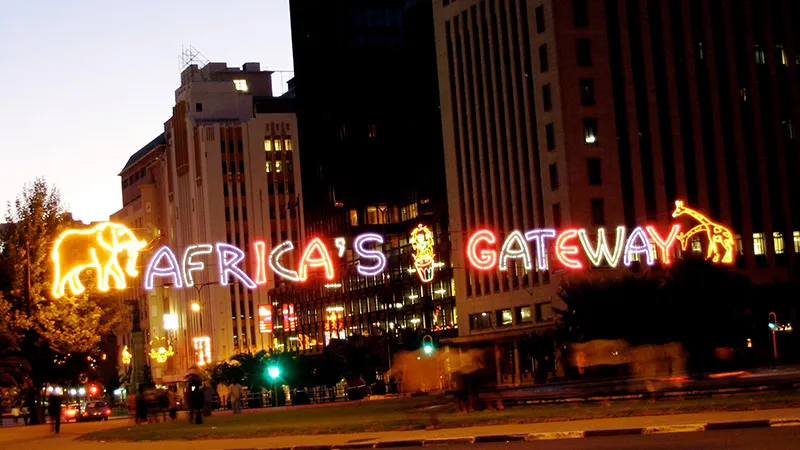-
CENTRES
Progammes & Centres
Location

On July 13, newly appointed British Prime Minister Teresa May assigned former London Mayor, Boris Johnson, the post of UK Foreign Secretary. The decision was greeted with open incredulity from around the world and across social media platforms. Many diplomats in reacting, notably US State Department spokesperson Mark Toner, displayed as little tact as Johnson himself is famous for. Indeed, the British broadsheets lost no time in compiling rather impressive lists of the foreign dignitaries and heads of state that Johnson has recently insulted, both as a journalist and later in his regular Daily Telegraph column, as he rode roughshod up through the ranks of the Conservative Party. The offended range from US Presidential hopeful Hillary Clinton, to Russian President Vladmir Putin and almost everyone in between. Rather aptly, former UK Deputy Prime Minister Nick Clegg labelled him, “
However, on closer examination, May’s choice for the country’s top diplomatic post may not be as spectacular a lapse in judgement as might first appear to be the case.
May has inherited a divided kingdom, still reeling from the economic and political implications of the Brexit referendum, announced on June 23, 2016. Both the Conservative and opposition Labour parties are in complete disarray as the vote to leave the European Union split, not just the country, but the political leadership of both parties, in two.
May appointing Johnson to his new position will achieve a number of things. Firstly, it is a step towards reuniting the party. Boris Johnson spearheaded the ‘Leave’ campaign, whereas May, less publicly profiled, was in in the ‘Remain’ camp. As a political olive branch, the gesture may do much for internal reconciliation within the Conservative Party, particularly as Johnson remains popular amongst the rank and file Conservative Party members. Equally, it cannot be lost on May that after having campaigned passionately and, some would say deviously, for Britain to leave the EU, Johnson promptly withdrew his intention to stand for the post of Prime Minister and has effectively left others to pick up the pieces. Incorporation into PM May’s new Cabinet prevents Johnson from distancing himself from the Brexit aftermath. In addition, his co-option prevents Johnson from sowing dissension amongst the ranks and causing mischief amongst the parliamentary backbenchers, should he recover his erstwhile leadership ambitions. He is now on the same hook as May to make the new government work.
Notably, May has also removed two weighty files, previously under the remit of the Foreign Secretary, from Johnson’s portfolio and created two separate ministerial posts. Liam Fox and David Davis have been appointed respectively as Minister of International Trade and Minister of Negotiating Terms under which the UK will leave the EU. These are two areas where Johnson’s flippancy, unchecked, might have caused the most damage. To cement this message, he must also (reportedly) share the traditional home of the Foreign Secretary, Chevening estate, with Fox and Davis as well. As noted by politics professor Tim Bale at Queen Mary, University of London, in a telephone interview with Bloomberg: “His role will now be glorified trade promotion and PR.” For good measure, PM May has also ensured that one of her stalwart supporters, Sir Alan Duncan, is second in command at the Foreign Office to keep 'Silvio Borisconi', as Duncan once dubbed him, in check.
Even in this reduced role, the question must be asked as to the impact Boris will have on Commonwealth relations, particularly with India and African member countries, for whom the UK is increasingly losing its relevance.
Economic relations with India have changed since the latter’s independence. Whereas approximately a third of India’s exports went to the UK in the 1950’s, and five percent of British exports found their way to Indian shores, bilateral trade has lost out relative to other trade partners, barely reaching USD 14.5 billion in 2015 and the UK trailing as India’s 12th largest trading partner. The UK’s bilateral trade with the entire African continent was just USD 25 billion in 2015, less than a tenth of Africa’s trade with China, the continent’s largest commercial partner. UK’s relationship with Africa is dominated by South Africa, which country comprises approximately 34% of that total and from whom 20% of its exports to the EU go through the UK. However, bilateral trade between India and South Africa is greater than either country’s exchange of goods and services with their former coloniser. The newly appointed Minister of International Trade, Liam Fox, will have his work cut out for him as he undertakes to renegotiate Britain’s trading position across the globe once this is no longer governed by the EU’s Economic Partnership Agreements (EPAs) of which both India and South Africa — the latter through the Southern African Customs Union (SACU) — are signatories. This will be made more complicated by the fact that Whitehall reportedly does not have a single trade negotiator in its employ.
The plot thickens. Whereas the UK had, since the turn of the millennium been the third largest investor in India, this dropped to 6th place in March 2015. Conversely, in June 2015, India emerged as the largest source of FDI for the UK, after France and the US. Not a time for the UK to make culturally insensitive gaffs.
And herein lies the opportunity for Boris Johnson as Foreign Secretary to add the greatest value or cause the most diplomatic harm.
Johnson’s flamboyance and penchant for controversial commentary earned him infamy as a media hack and later as a political personality during his term as London’s Mayor. However, his irreverence is unlikely to earn him any favours when representing his country internationally, and especially to the global south. Johnson’s offensive comments regarding Africa in particular, exemplified in a column he wrote in 2002 on a visit to Uganda, have done much to reinforce the outdated stereotypes widely held in Britain of a hopeless, warn-torn and AIDS-riddled continent. To say nothing of the xenophobic bent of the Brexit campaign that he championed.
Nonetheless, however colourful he may be, the man is not an idiot. Buried amidst the deliberately outrageous assertion that Africa would be better off if colonialism returned, is a stinging satirical sketch of the international aid industry and the pertinent question as to why foreign aid, rather than trade to Africa, was prioritised by the Blair government. These are questions that African activists and intellectuals have been asking for years.
If Johnson can hold himself back from satirising heads of state, and swallow the humble pie that he will be served in Brussels and beyond, he may yet be able to adjust his manner to reach his new audience. If he cannot, the loss will be to 10 Downing Street, and the world will move on regardless.
The views expressed above belong to the author(s). ORF research and analyses now available on Telegram! Click here to access our curated content — blogs, longforms and interviews.

Lucy Corkin is Business Strategist at Rand Merchant Bank in South Africa. Lucy has an academic background specialising in capital flows between China and African ...
Read More +